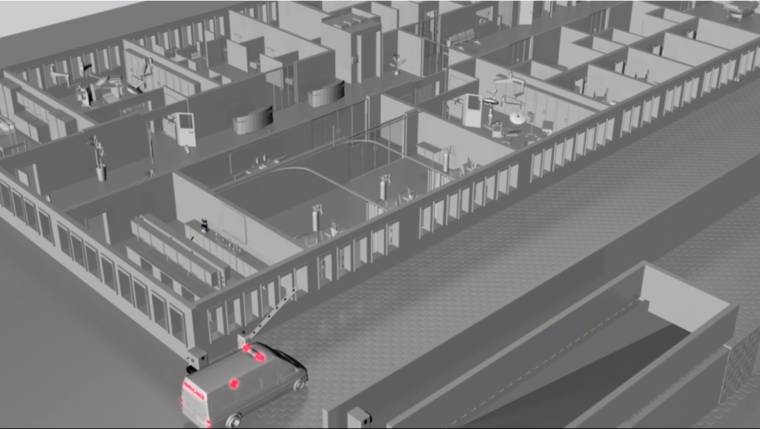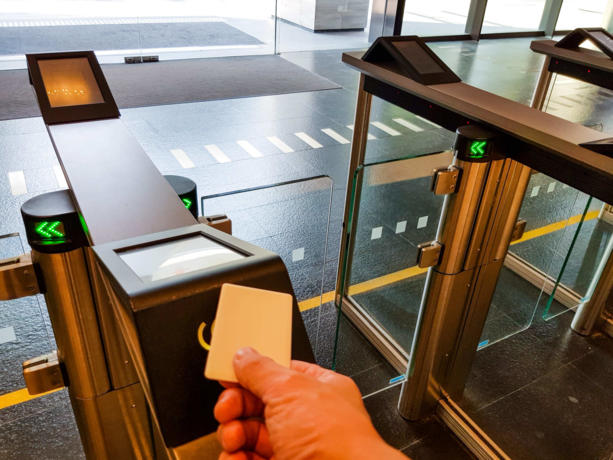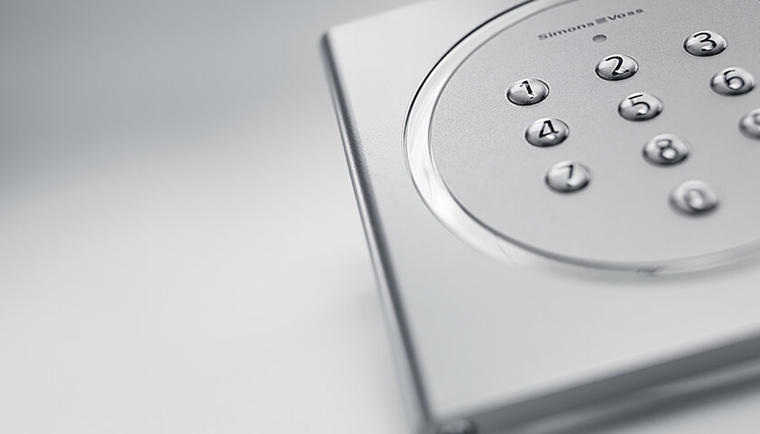Hospital Security
Hospitals are places of healing and care, but they are also places of vulnerability. They are open 24/7, with hundreds of visitors, patients, and staff members coming and going at all times. With this constant flow of people, it can be challenging to keep hospital premises secure. Hospitals need to be vigilant and implement effective security measures to ensure the safety of patients, staff, and visitors. Access control systems are one such measure that hospitals can use to enhance security.

▶ What are Keyless Entry Systems?
Keyless entry systems are security systems that allow or deny access to specific areas of a building. They are designed to regulate and monitor who enters and exits a building or areas within a building. The most technologically advanced access control systems are electronic, and they use a variety of authentication methods, such as keycards, biometric scans, and passwords.
▶ Why are Keyless Systems Necessary in Hospitals?
Hospitals have a unique security challenge because they must balance the need for accessibility and convenience with the need for security. Most hospitals already have a type of access control system in place, that allows patients and visitors to move around the hospital as need be but many hospitals are lacking in security when it comes to securing medicine cabinets, supply closets, patient records rooms and even plant rooms, where access should be restricted to only those who have the necessary certification to access. This widespread need for accessibility has to be balanced with efficient and reliable security to ensure the safety of patients, staff and expensive medical equipment and medication.
Keyless door lock systems like the System 3060 and SmartIntego from SimonsVoss provide a sophisticated but affordable solution for hospitals that allow granular access to sensitive areas of the hospitals.
SimonsVoss provides state-of-the-art, hygienic access control for healthcare facilities to ensure that the response and flexibility of practitioners aren’t impacted when they are tending to their patients.
▶ What to Look For in Keyless Entry and Door Lock Systems for Hospitals?
Access control in hospitals is critical to ensuring the safety and security of patients, staff, and sensitive medical information. Here are some important factors to consider when looking for the best access control for hospitals:
Integration with existing systems: The access control system should be able to integrate seamlessly with the hospital’s existing security systems, such as CCTV, alarms, and intercoms, to provide a comprehensive security solution. SimonVoss’ access control system integrates with over 30 different types of security systems – take a look at the Certified Integration Partners
Customisation: Hospital access control systems should be customisable to meet the unique needs of the facility. For example, different areas of the hospital may require different levels of access, and the system should be able to accommodate this. SimonsVoss’ technology enables you to specify access to medicine cabinets, supply closets and even plant rooms at a quarter of the cost of installing a system on a door. The system allows you to specify and control who has access to the most confidential areas in the hospital, ensuring that no health and safety regulations are ignored.
User-friendly: The system should be easy to use and understand for staff members, patients, and visitors. This is especially important in a hospital setting where time is often of the essence and staff members may be under a lot of pressure and stress.
Scalability: The access control system should be scalable, allowing the hospital to easily add or remove access points as needed. This is important for hospitals that are undergoing expansion or remodelling. SimonsVoss’ system is able to scale according to your needs, allowing you to easily add more access control, even retrofitting systems on building doors, with minimal interruptions and disturbance to your patients and staff.
Reliability: The system should be reliable and have a backup power source in case of power outages. This is especially important in a hospital setting where security is critical. A power supply is no concern with the System3060, as all the locks are battery operated, with a 12 year standby battery life, ensuring that security is never compromised, even in times of power failures.
Audit trails: The system should have the ability to generate audit trails, which can be used to track who has accessed certain areas and when. This is important to ensure compliance with hospital policies and regulations and if ever trail logs might be requested in security threats.
Support: The access control system should come with reliable and responsive customer support to address any issues or concerns that may arise. SimonsVoss offers a reliable and knowledgeable support system. No matter whether via hotline, on-site or remote – our service teams are there for you.
▶ Benefits of Hospital Keyless Entry Systems
A customised keyless entry system for a hospital and healthcare facility plays a crucial role in daily operations. Keyless systems can help manage access to smaller areas like medical cabinets, entire wards, staff lockers and even on-site laboratories, ensuring that entry is restricted to those who need it.
Our keyless solutions are cost-effective alternatives to traditional locking – eliminating expenses and risks and headaches that are incurred when lost keys have to be replaced. A keyless solution reduces administrative costs and access can easily be revoked or granted from a single centralised system.
There are several more benefits to implementing the SimonsVoss System3060 access control systems in hospitals, including:
Enhanced Security
Active security for sensitive data, patient records and medicine cabinets or pharmacies.
Improved Patient Safety
Access control systems can ensure that only authorised medical personnel enter operating rooms, critical care units, and other sensitive areas, reducing the risk of medical errors and improving patient safety.
Audit Trails
When a tenant wants to enter their room, they present their access credentials to the lock. The lock’s reader reads the access code, and if it matches the code programmed into the lock, the door is unlocked. Some locks also require the resident to enter a PIN code, providing an additional layer of security.
Improved Emergency Response
Access control systems can help hospitals respond quickly to emergencies by providing real-time information on the location of staff and patients.
Easy installation
Cable-free and wireless retro-fitting to older buildings with minimal disruption to staff and patients.
Reducts costs
Reduced costs, increased sustainability and minimal power consumption.
▶ Types of Access Control Systems for Hospitals
There are several types of access control systems that hospitals can use to enhance security, including:
Keycard Systems:
Keycard systems use a magnetic stripe or proximity card to grant access to specific areas. Keycards can be programmed with different levels of access, and they can be easily deactivated if lost or stolen.

Password Systems:
Password systems use a code or password to grant access to specific areas, restricting access and creating time logs of areas that were accessed with a specific code.

Access control systems are a critical component of hospital security. They provide hospitals with the means to regulate and monitor access to sensitive areas, ensuring the safety of patients, staff, and visitors. With the increasing importance of data security and privacy, access control systems are becoming increasingly necessary in healthcare environments.
As healthcare providers continue to embrace technology to improve patient care and enhance operational efficiency, it is essential to remember that patient safety and security must remain a top priority. Access control systems can provide hospitals with an added layer of security and peace of mind, allowing them to focus on their primary mission of providing high-quality care to their patients.
SimonsVoss keyless entry system is designed with safety at its core. Our system also has an override function that can be activated in response to an emergency, ensuring that staff are always able to gain access to their patients. This also means that patient access can easily and quickly be granted or revoked when necessary, ensuring that staff and patients are protected at all times.
Contact our team of experts at SimonsVoss to find out more about our keyless door entry systems for healthcare facilities. We’ll focus on customising a solution the safety of your patients, while you focus on taking care of their health.
